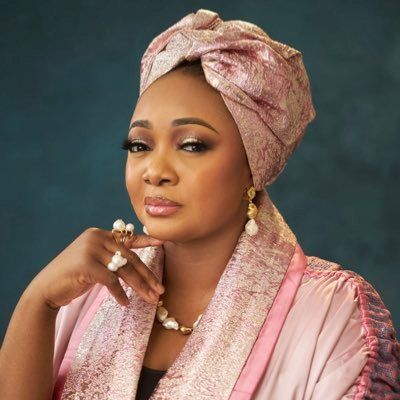As the world celebrates International Women’s Day (IWD), the Federal Government of Nigeria has identified four critical dimensions of challenges confronting Nigerian women.
According to the Minister of Women’s Affairs, Imaan Sulaiman-Ibrahim the four dimensions of challenges facing Nigerian women are: the legal and policy framework, economic empowerment, gender-based violence and social norms, political representation and leadership.
The Minister made this known on Thursday during the media briefing to flag off the 2025 International Women’s Day celebration held in Abuja.
“There are four dimensions to the issues that continue to confront us. First, the legal and policy framework. While Nigeria has made significant progress in enacting gender-responsive laws such as the Violence Against Persons (Prohibition) Act (VAPP) and the Child Rights Act, full implementation remains a challenge”
She noted that only 35 states have domesticated the VAPP Act, while 34 states have adopted the Child Rights Act.
“It’s a step in the right direction but not yet enough. We need full compliance, effective enforcement, and accountability to ensure that the rights enshrined in these laws are a lived reality for every Nigerian woman and girl.”
“Second is economic empowerment. Women drive Nigeria’s informal economy, owning 41% of Micro, Small, and Medium Enterprises (MSMEs). However, access to finance, markets, and digital literacy remains a barrier to scaling their businesses.
“More than 94% of women still lack access to formal credit despite their proven ability to reinvest in their families and communities.
” We must close the gender financing gap, expand opportunities in trade, technology, and digital skills, and provide structured support for women entrepreneurs.
“Under the Nigeria for Women Project Scale Up project, which we just commenced, we will be reaching a minimum of 4.5 million women nationwide to bridge the gap.” She informed.
“The third is gender-based violence and social norms. Over 30% of Nigerian women aged 15-49 have experienced physical violence, and one in four girls has been sexually abused before age 18. We recently witnessed the tragic deaths of Emrich Effanga in Cross River State and Mutiat Sholola in Ogun State; the heartbreaking case of the 24-year-old Salome Adaidu, killed in Nasarawa State; the Mother of 6, whose husband allegedly poured petrol on her and set her ablaze in Anambra State; and the woman whose fingers were chipped off by her supposed boyfriend in Dei-Dei Community, Federal Capital Territory, amongst others.”
These are stark reminders of the urgent need to sustain the declaration of the state of emergency on gender-based violence embarked upon in 2020 by Nigeria’s Governors Forum in the wake of a high number of such cases in the midst of the COVID-19 lockdown.
“These are not isolated incidents, but part of a larger pattern of violence that must be decisively addressed. Harmful traditional practices such as child marriage and female genital mutilation (FGM) persist, with Nigeria ranking third globally in child marriage prevalence – a statistic that should alarm us all. The Ministry remains unwavering in its commitment to strengthening survivor-centered services, and we are pushing for the review of the Child Rights Act and the VAPP Act and creating safe spaces across the country. This is not just a women’s issue; it is a national crisis that undermines our collective development.
“Fourth is political representation and leadership. Women remain vastly underrepresented in decision-making spaces. In our 10th National Assembly, only 4 out of 109 Senators and 17 out of 360 House of Representatives members are women, with 15 states lacking any female representation.
This stark imbalance is not reflective of a progressive democracy. We must accelerate efforts toward political inclusion, ensuring that women have a seat at the table – not as tokens but as equal partners in governance and development. ”
According to the Minister, accelerating action demands that we confront the harsh realities facing women and girls in Nigeria today.
“For too long, our interventions have been largely dependent on donor funding; an approach that, while helpful, is neither sustainable nor sufficient. True transformation requires nationally owned investments.
“This is why we commend President Tinubu, who has, for the first time in the history of the Ministry, significantly raised its budget.”
This landmark decision signals a new era of government commitment to institutionalizing women’s empowerment as a core pillar of national development.
“With these increased resources, we will prioritize the resuscitation of one of the Ministry’s legacy project, the National electronic dashboard launched as part of a collaboration between the Federal Ministry of Women Affairs under the European Union-United Nations (EU-UN) Spotlight Initiative to provide comprehensive data to help tackle gender-based violence” She assured.















